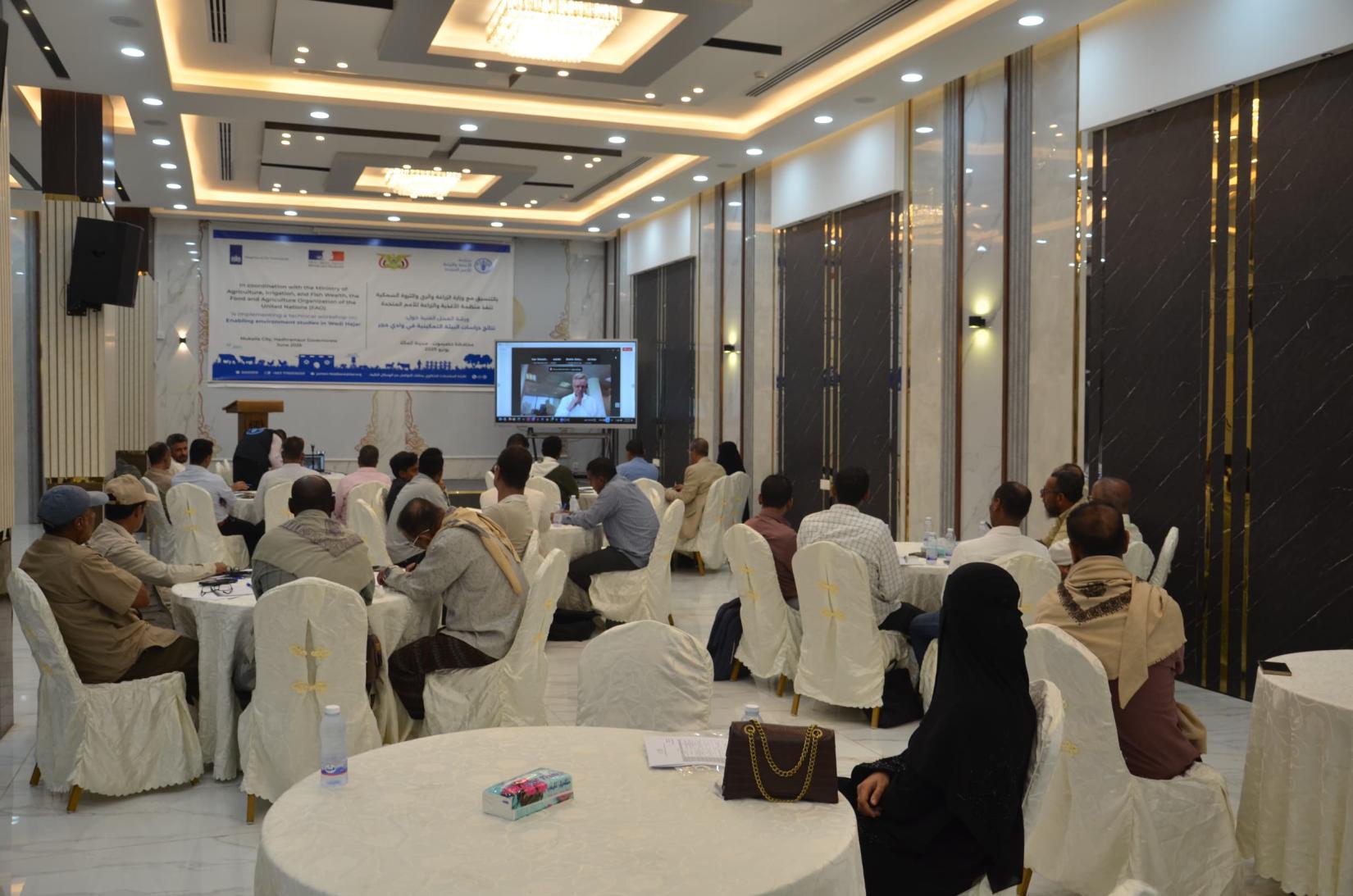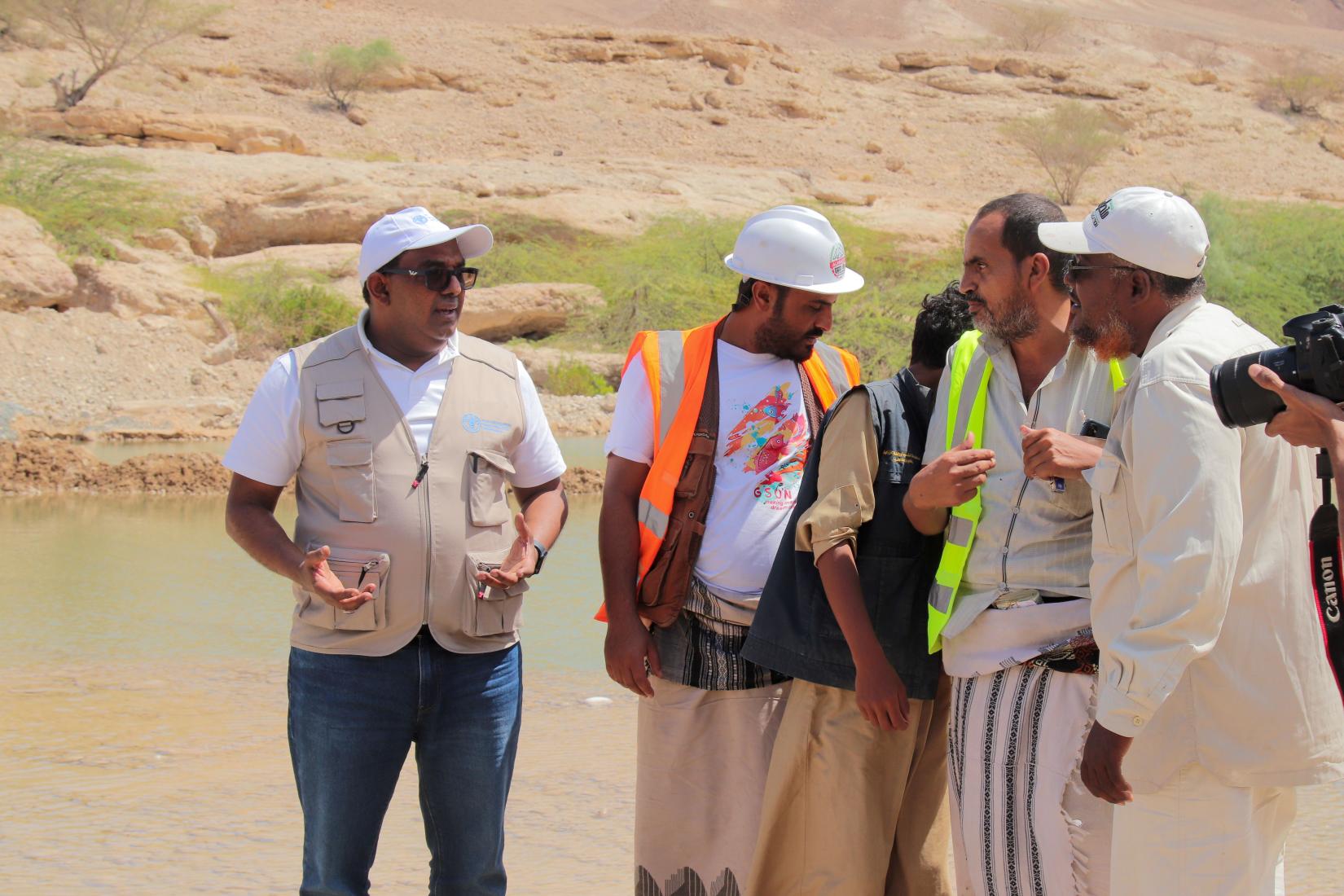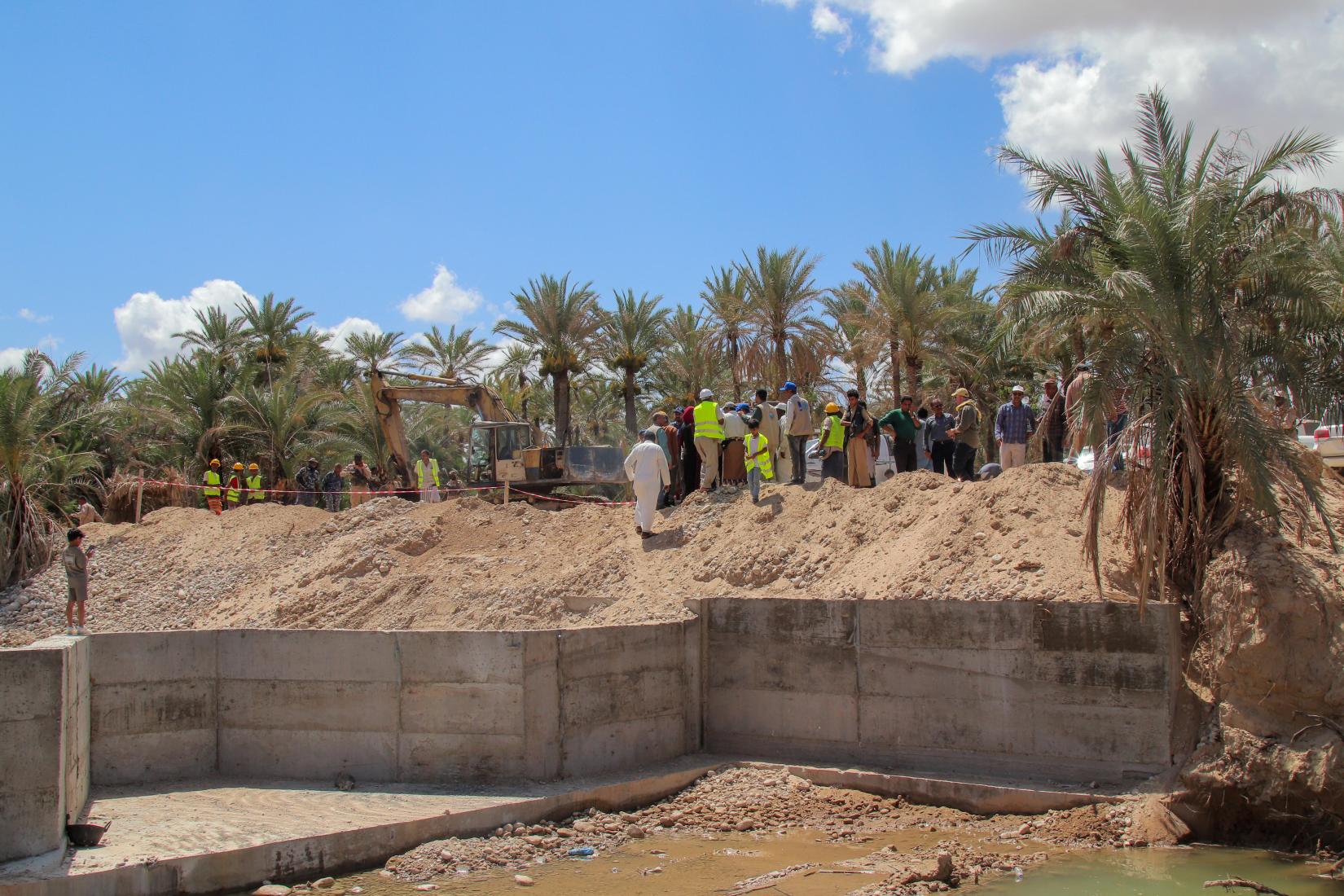FAO Yemen: FAO Hosts Technical Workshop with key stakeholders to Enhance Watershed Management in Wadi Hajr
22 June 2025
---
Mukalla, Yemen – 22 June 2025
The Food and Agriculture Organization of the United Nations (FAO), in collaboration with the Ministry of Agriculture, Irrigation and Fisheries (MAIF), the Ministry of Water and Environment (MWE), and the Netherlands Embassy, hosted a hybrid technical workshop in Mukalla, Hadhramaut Governorate. This engaging workshop presented findings from crucial baseline studies conducted by Acacia B.V. and Wageningen University to advance effective watershed management in the Wadi Hajr region under the "Sustainable Watershed Management through Reinforced Governance, Resilience, and Regenerative Agriculture in Wadi Hajr project that is funded by the Netherlands Embassy with support from the Government of France.
Been a vital agricultural area in Yemen, Wadi Hajr is the only Yemeni wadi that has a baseflow round the year. The region experiences an arid to semi-arid climate, with annually varying rainfall and high-water loss due to evaporation. The Wadi is essential for sustaining local agriculture, which is the main livelihood for local communities in the region.
Key findings from the studies indicated that the cultivable presents opportunity for agriculture predominantly for dates palm, vegetables and cereals utilizing traditional spate irrigation methods. However, the region faces significant challenges, including deteriorating irrigation systems and the urgent need to rehabilitate large to medium infrastructure of over 30 spread along the Wadi and over 500 smaller ones while considering storage facility provision. Additionally, extreme weather events, with a projected increase in temperature that are expected to heighten flash floods, leading to population displacement and disruption of agricultural activities.
Farmers are utilizing merely 10% of the available surface flow due to damaged irrigation infrastructure and a lack of large storage infrastructure to prevent flash floods waters that currently flow downstream to the sea. Existing crops primarily include sorghum, millet, and wheat, with date palms serving as the main cash crop, requiring improved marketing strategies. Studies also reveal the potential for highland wheat expansion, while further assessment is needed for wheat production feasibility in the floodplains due to rising temperatures.
Further, the findings highlighted critical community needs, including improved water management through enhanced irrigation systems and urgent infrastructure rehabilitation to reduce flood risks. There is also a pressing demand for equitable access to land and water resources, especially for women facing barriers to ownership and rights. Additionally, communities require training and support to adopt sustainable farming practices, boost crop productivity, and implement climate adaptation strategies to safeguard agricultural livelihoods against worsening environmental challenges.
The ongoing project, "Sustainable Watershed Management through Reinforced Governance, Resilience, and Regenerative Agriculture in Wadi Hajr," is already addressing some pressing needs by initiating improvements in irrigation systems and infrastructure rehabilitation. A joint Wadi Hajar development effort from the governments of the Netherlands and France has been a key partnership in developing the area.
The workshop gathered national stakeholders, local government officials, technical experts, civil society leaders, and international donors to discuss the findings and develop actionable strategies. Emphasis was placed on the importance of equitable access to land and water, particularly concerning gender issues in land tenure. Women often face limitations regarding land ownership and access to resources, highlighting the necessity for inclusive policies.
Dr. Hussein Gadain, FAO Yemen Representative, stated, "This workshop marks a milestone in our joint efforts for inclusive management of the scare land and water resources in Yemen for achieving food security and transforming agrifood systems for the better life of the people of Yemen. Let's engage openly and strengthen our roadmap for transforming Wadi Hajr into a productive landscape."
During the workshop also it was also emphasized that there is an ongoing collaboration with the Netherlands and the World Bank to improve climate and water information management in the region through developing a framework for wider information management system for the country. This system aims to improve decision-making for local authorities by providing real-time data on climate and water resources, facilitating better resource allocation and adaptation strategies.
This partnership aims to leverage the findings from recent studies to support informed decision-making for sustainable development in Wadi Hajr and other parts of the country.
As the workshop concluded, there was a strong commitment among participants to seek additional funding to extend interventions throughout Wadi Hajr. The Netherlands government is initiating funding for the establishment of the new Wadi Hajr Development Committee to prepare investment plans that will further enhance agricultural productivity and community resilience.








